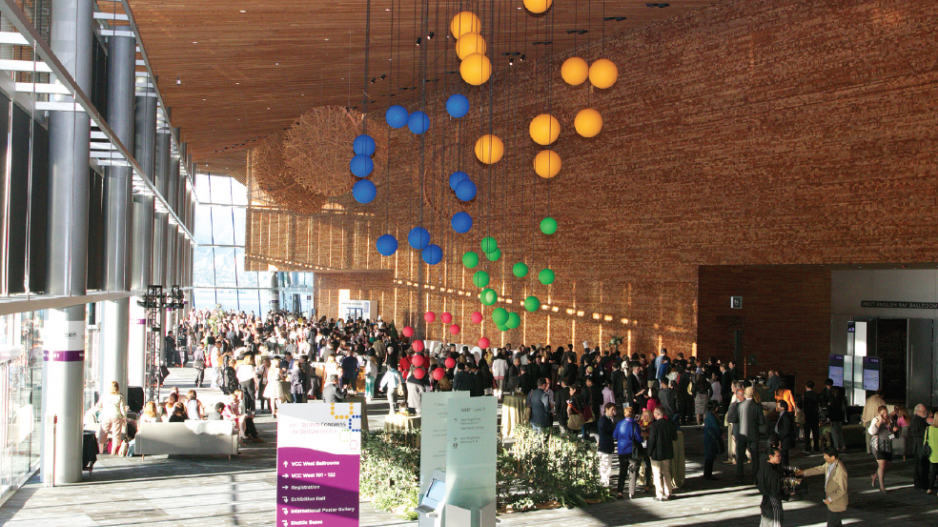When the 27th International Ornithological Congress arrives in Vancouver in 2018, not only will it draw tens of thousands of delegate dollars, but it will also raise the profile of the city within one of the fastest-growing multibillion-dollar hobbies in the world. And it would never have happened without Tourism Vancouver’s Be a Host program, according to local ornithologist and conference convener Robert Elner.
The Be a Host program, which celebrates its 20th anniversary in 2016, identifies international associations that may be looking for a conference venue. It then partners with a local member of that association to bring the group to Vancouver.
“In the international meetings and conventions world, a local host or local organizing committee is required in order to bid on a piece of business,” said Be a Host program manager Andrea Caesar. “If they’re thinking about bringing a conference here, we want them to be aware of what we can do to put the bid together, [help with] sourcing the venue, acquiring hotel rooms and assisting in all facets of the conference. That lets them focus on the scientific, research and educational component.”
After bringing a smaller but highly successful conference to the University of British Columbia in 2012, Elner was invited to participate in a Be a Host three-day workshop.
“Somewhat skeptically, I accepted the invitation, and within half an hour,” Elner said, “I was riveted. … It was a game-changer, not only validating the way I was operating but also [revealing] huge potential in expanding the model on a large scale. … The penny dropped that this was really big business.”
Big business may be an understatement. Tourism Vancouver estimates $45 million in direct visitor spending annually as a result of the program. And that doesn’t take into account the spinoff effect. For example, estimates suggest there are as many as 75 million bird watchers in the U.S. alone, spending $42 billion annually, with 18 million travelling away from home at least once a year. Putting Vancouver on the birding map promises to gain the city some of that market, Elner said.
This past June, the World Congress of Dermatology brought 10,000 delegates to Vancouver – one of the city’s biggest conferences to date. Local dermatologists Harvey Lui and Jerry Shapiro partnered with the Be a Host program to work on the bid that ultimately won over the voting committee.
“This was our third attempt bidding on the world congress,” Lui said. “The committee brought in Tourism Vancouver during the last bid [10 years ago], but not until late in the process. They should have been involved a lot earlier. … This time, we contacted Tourism Vancouver right at the beginning and received lots of advice and support from the Be a Host team. They dissected and analyzed our previous bids, telling us what we needed to do differently this time around, offering suggestions and strategies. And it worked.”

Lui acknowledged that the guidance from Tourism Vancouver was key in helping them manoeuvre through the politics of putting together the bid.
“Tourism Vancouver told us if we didn’t connect one-on-one with as many voters as possible we were sunk,” he said. “So we focused on the personal approach, going out and meeting people and asking for their advice on how we could improve. That was important. Not only did we receive helpful feedback, but we were also able to gauge who was on our side.”
Elner emphasizes, as well, the importance of having someone within a scientific community pitch to the international association.
“It’s not the city standing in front of the executive asking where the next meeting is going to be; it’s someone who has a lot of scientific credentials. Scientists are looking at their own kind to offer to do this stuff.”
The bid process may range from six months to two years, and Tourism Vancouver’s 17 Be a Host staffers have multiple bids at different stages on the go at the same time. There are 800 active local hosts who are either working on or have recently worked on conference bids, Caesar said. The sizes of the congresses range from 300 to 15,000 people, and the booking cycle has to start far in advance. Be a Host is working on bids now for groups that will come between 2018 and 2025. The organization bids on an average of 500 meetings a year with a success rate of 45%.
That success led to Vancouver being ranked by the International Congress and Convention Association as the top North American city for hosting international meetings in 2014 •




